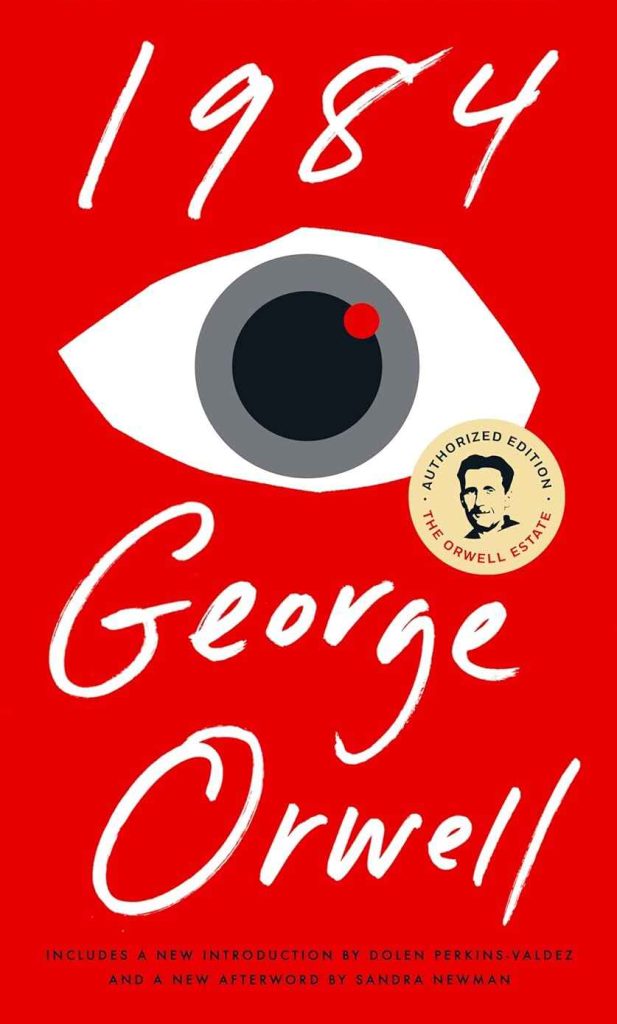“1984” by George Orwell is important because it shows a scary world where one government has complete control. It warns us about the dangers of governments having too much power, stopping people from saying what they want, and watching them all the time. It reminds us that it’s really crucial to keep democracy and human rights safe.

Discover why ‘1984’ isn’t just a novel but a chilling mirror reflecting the complexities of our society. Let’s uncover the profound lessons hidden within the pages of ‘1984’.
Why Is 1984 by George Orwell Important?
“1984” by George Orwell is significant for several reasons.
Totalitarian Terrors: The Warning of “1984″
First and foremost, it serves as a stark warning about the dangers of totalitarianism, where a government has complete control over its citizens’ lives. In the book, the government, led by the enigmatic figure Big Brother, exercises its authority through pervasive surveillance, propaganda, and strict regulations. Orwell vividly depicts a society where individual freedom and autonomy are ruthlessly suppressed. This illustrates the chilling consequences of unchecked state power.
Words as Weapons: The Power of Language in “1984″
Furthermore, “1984” shows how language affects how we think and act. The government in the book controls language with Newspeak, a limited set of words meant to stop people from thinking independently. By controlling what people can say, the government stops them from disagreeing and keeps power. Orwell emphasizes how important language is in how we see the world and warns about how powerful people can manipulate language to control others.
Truth Twisted: Unraveling Deception in Orwell’s “1984″
Additionally, the novel underscores the importance of truth and the perils of its distortion. The government in “1984” systematically alters historical records and disseminates falsehoods to manipulate public perception and consolidate its control. This distortion of truth blurs the lines between reality and fiction. It makes it challenging for individuals to discern fact from propaganda. Orwell’s portrayal serves as a poignant reminder of the necessity of safeguarding the truth and resisting efforts to obfuscate it.
Individuality vs. Conformity: The Battle in “1984″
Moreover, “1984” raises poignant questions about individuality and conformity. The protagonist, Winston Smith, grapples with the oppressive conformity imposed by the regime while yearning to preserve his own sense of self. Through Winston’s struggles, Orwell highlights the intrinsic value of individual freedom and the dangers of succumbing to societal pressures to conform.
In essence, “1984” remains a compelling and thought-provoking work due to its profound insights into the perils of totalitarianism, the power of language, the importance of truth, and the preservation of individual autonomy. Its themes continue to resonate with readers, serving as a poignant reminder of the enduring relevance of Orwell’s cautionary tale.
What Is So Good about The Book 1984?
“1984” is considered a great book because it paints a scary picture of a world where the government controls everything. People in this world have no freedom or privacy, and they can’t even think for themselves because the government watches them all the time. The book feels relevant even today, even though it was written a long time ago by George Orwell. It serves as a warning about what might happen if we’re not careful.
A key element of the book is the concept of “Big Brother.” He’s like the ruler of everything, but no one knows if he’s real or just a made-up figure. This mystery adds tension to the story, making it exciting to read.
Another important theme is propaganda and how the government controls what people think. They manipulate history and spread lies to maintain power, essentially rewriting reality. This manipulation is chilling to think about.
The main character, Winston, is relatable because he doesn’t like the way things are and wants to rebel against the government, despite the danger. His struggle is something readers can understand and root for.
In summary, “1984” presents a world that feels alarmingly relevant today, serving as a cautionary tale about the dangers of unchecked government power and societal control.
Why ‘1984’ Is Still Relevant Today?
“1984” is still important today because it talks about things that are still happening. It remains relevant today due to its timeless exploration of themes such as government surveillance, authoritarianism, censorship, and the manipulation of truth.
Here’s why:
Government Watching: The book talks about how the government watches people all the time. This is like what happens now with cameras and the internet. Governments and big companies collect a lot of information about us, which makes some people worry about privacy.
Leaders with Too Much Power: In the book, the government is really powerful and controls everything. Today, we see leaders in some countries getting too much power and acting like they’re the only ones who matter. This is similar to what happens in the book.
Changing the Truth: In “1984,” the government changes the truth to control people’s thoughts. Nowadays, we have fake news and people spreading wrong information. This can make it hard to know what’s true and what’s not.
Technology and Control: The book shows how technology can be used to control people. Today, we have smartphones, social media, and other tech that can watch us or influence what we think. Sometimes, this makes us wonder if we’re really free.
Scary Future: “1984” warns us about a future where freedom is lost and people can’t speak out against the government. Today, we see a lot of division and problems in the world. The book reminds us that we need to be careful to protect our freedom and stand up against bad things happening in society.
So, even though “1984” was written a long time ago, it still matters because it makes us think about important issues that affect us today.
The Message for Today in Orwell’s ‘1984’
“1984” by George Orwell carries a powerful message about the dangers of totalitarianism and the importance of individual freedom.
The main message is that when governments have too much control over people’s lives, it can lead to oppression, manipulation, and the loss of basic human rights.
In the book, the government, led by Big Brother, monitors every aspect of people’s lives, including their thoughts and actions, through surveillance and propaganda. This extreme level of control suppresses individuality and creativity, leaving people feeling powerless and afraid to speak out against the regime.
Orwell warns us about the consequences of sacrificing our freedom for the illusion of security. He shows how language can be manipulated to control people’s thoughts and how historical facts can be rewritten to serve the interests of those in power.
Ultimately, “1984” serves as a cautionary tale, urging us to remain vigilant against the rise of authoritarianism and to defend our rights and freedoms, no matter the cost. It reminds us that the price of liberty is eternal vigilance and that we must never allow ourselves to become complacent in the face of tyranny.
Final Words
Basically, “1984” isn’t just a made-up story. It’s like a guide for freedom. Especially now, when our lives are so connected online, “1984” reminds us to be careful and to question things that don’t seem right.
As we go through life in our complicated world today, let’s listen to what Orwell is saying. Let’s remember to always stand up for what’s true, fair, and lets people be themselves. Because if we all keep an eye out and stay strong, we can make sure that everyone gets to keep their important rights and freedoms.
Let’s play a role in ensuring our world is fair and free.


